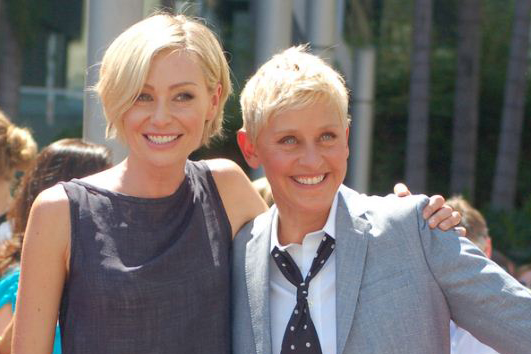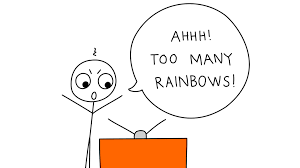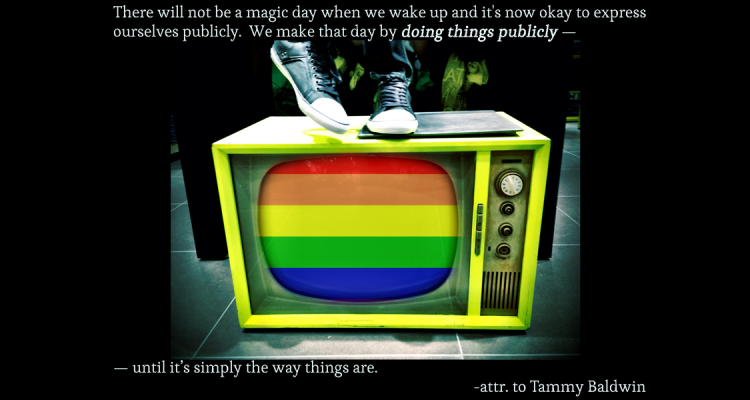By: Tonya Smith (Writing, PI) and Patrick W. Zimmerman (research, dashboards)
It takes some serious chutzpah to broadcast your love interests to millions of people all around the globe (even if you’re a celebrity and an old hat at doing this sort of thing).
But does it pay to do so? How does coming out affect an actor’s ratings (and, thus, their bottom line)?
We live in a time when twenty seven countries now have laws on the books recognizing same sex marriages. Pride festivals in major cities are large enough to have (controversial) corporate sponsorships. There are popular mainstream shows with complex, well-written LGBT characters.
So does that support translate to a gain in viewership for an actor bold enough to take the plunge and put their sexual preferences out there for the world at large?
The question
How does an actor or showrunner coming out as LGBTQ affect TV viewership of a given show?
The methodology
We started by taking a look at television actors who publicly came out as LGBT while they were on a show, comparing viewership numbers before and after coming out. Specifically, we looked at the audience reaction to the announcement, as shown in average year-to-year change in ratings (slope) before a creator came out as LGBT and compared it to the slope after.
Audiences can say whatever they want about how they feel about an actors politics; they vote with their attention span.
To try to minimize other factors that may have influenced the data (like in cases where a show was cancelled shortly afterwards due to poor ratings, a la Arrested Development following Portia De Rossi coming out), we stuck with actors who had been on a show for a year or more before coming out, and remained on that show a year or more after coming out. We also avoided streaming shows, because ratings data is generally hoarded by streaming services like Netflix and Hulu and (thus) incredibly difficult to find.
The results
There are some ratings fluctuations, but the overall pattern for most of the shows on our list shows ratings declining following an actor (or creator) coming out as a member of the LGBT community. The only shows whose ratings have increased over time following an actor coming out publicly are Ellen DeGeneres from The Ellen Show, Kristian Nairn from Game of Thrones, and Rebecca Sugar from Steven Universe.
| Show | Actor | Year out | Slopecloset | Slopeout | Δ slope |
|---|---|---|---|---|---|
| Steven Universe | Rebecca Sugar | 2016 | -0.07 | +0.34 | +0.41 |
| Game of Thrones | Kristain Nairn | 2014 | 1.41 | 1.69 | +0.28 |
| The Ellen Show | Ellen DeGeneres | 1997 | -4.46 | -4.39 | +0.07 |
| White Collar | Matt Bomer | 2014 | -0.38 | -0.70 | -0.32 |
| Brothers & Sisters | Luke MacFarlane | 2008 | -0.63 | -1.21 | -0.58 |
| Arrow | Colton Haynes | 2016 | -0.21 | -0.87 | -0.66 |
| Grey’s Anatomy | Sara Ramirez | 2015 | -.92 | -1.69 | -0.77 |
| Modern Family | Reid Ewing | 2015 | 0.28 | -1.83 | -2.11 |
| Big Bang Theory | Jim Parsons | 2012 | 1.82 | -.69 | -2.51 |
| True Blood | Anna Paquin | 2010 | 2.25 | -0.37 | -2.62 |
The bump in ratings for The Ellen Show makes sense. Ellen’s character, Ellen Morgan, was the first the first gay lead character on network television. Ellen was a pioneer, and that’s the sort of thing that tends to get noticed.

Ellen paved the way to being gay on TV. Photo credit: Angela George.
Steven Universe scored the most significant bump following Rebecca Sugar coming out as bisexual, but this isn’t terribly surprising given the abundance of queer themes on the show.
True Blood was surprising. How does a show that brings us the AIDS burger scene see a decline in ratings when a major character comes out? And yet True Blood suffered the most significant decrease in ratings over time following Anna Paquin coming out as bisexual.
It’s tough to tell what happened here. Perhaps pervasive negative attitudes towards bisexuality specifically influenced the downward trend, but Steven Universe’s ratings changes suggest the opposite, at least among that fan base.
Audience reaction has not really changed in the last 20 years
So we think we’re more progressive now than in 1997, and that is probably attested to by the number of actors and creators willing to come out as gay. But not so much by the reaction of their audiences, which is pretty much smack dab the same.
This begs the question – is there something fundamentally different about the audiences of these few shows that makes them more accepting? Perhaps this is simply a symptom of a larger problem, the death throes of broadcast television at the hands of streaming media. With the exception of The Ellen Show, a significant portion of all of these shows aired post-2013, in an era when shows are increasingly competing for an audience that prefers to binge watch on its own schedule rather than patiently slogging through a series one episode at a time, week after week.

False. There is no such thing as too many rainbows. Image credit: Studio tdes.
What’s next?
Given that the set of actors on TV shows is not exactly huge, and the subset of actors who came out midway during a show’s run (thus fitting our criteria) is even smaller, our findings aren’t statistically significant, but suggestive of a possible larger pattern. More data is needed to see what factors are at play here.
How do you disentangle declining ratings for TV shows with prominent LGBTQ artists from the general crisis of broadcast television? Look for gay artists who work in related media!
Next up, we’re going to continue this examination of whether it pays to be gay in the media by looking at the earning power of movie actors who have come out of the closet. Does money talk?


No Comments on "Does it pay to be gay (on TV)?"